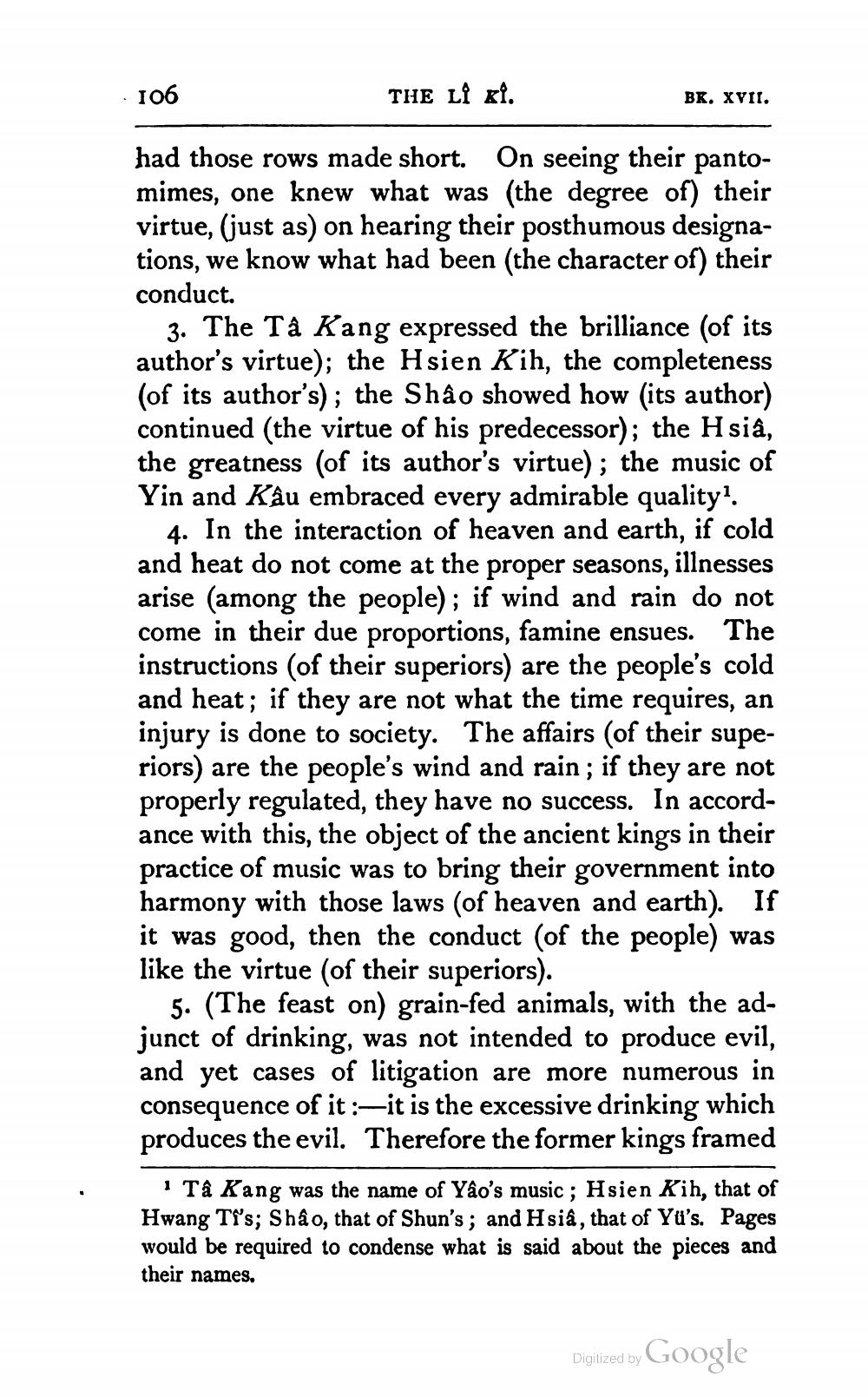________________
· 106
THE LÎ ki.
BK. XVII.
had those rows made short. On seeing their pantomimes, one knew what was (the degree of) their virtue, (just as) on hearing their posthumous designations, we know what had been (the character of) their conduct.
3. The Tà Kang expressed the brilliance (of its author's virtue); the Hsien Kih, the completeness (of its author's); the Shâo showed how (its author) continued (the virtue of his predecessor); the H siâ, the greatness (of its author's virtue); the music of Yin and Kâu embraced every admirable qualitył.
4. In the interaction of heaven and earth, if cold and heat do not come at the proper seasons, illnesses arise (among the people); if wind and rain do not come in their due proportions, famine ensues. The instructions (of their superiors) are the people's cold and heat; if they are not what the time requires, an injury is done to society. The affairs (of their superiors) are the people's wind and rain ; if they are not properly regulated, they have no success. In accordance with this, the object of the ancient kings in their practice of music was to bring their government into harmony with those laws (of heaven and earth). If it was good, then the conduct (of the people) was like the virtue (of their superiors).
5. (The feast on) grain-fed animals, with the adjunct of drinking, was not intended to produce evil, and yet cases of litigation are more numerous in consequence of it:it is the excessive drinking which produces the evil. Therefore the former kings framed
1 Tâ Kang was the name of Yao's music; Hsien Kih, that of Hwang Ti's; Shâo, that of Shun's; and Hsia, that of Yu's. Pages would be required to condense what is said about the pieces and their names.
Digitized by Google




